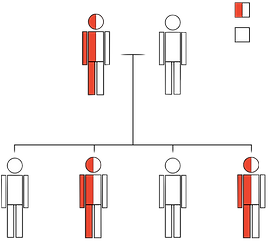(212) 343-2011
100 East 77th Street
New York, NY 10075
(212) 343-2011
100 East 77th Street
New York, NY 10075
(212) 343-2011
100 East 77th Street
New York, NY 10075
(212) 343-2011
100 East 77th Street
New York, NY 10075
(212) 343-2011
100 East 77th Street
New York, NY 10075
(212) 343-2011
100 East 77th Street
New York, NY 10075
(212) 343-2011
100 East 77th Street
New York, NY 10075
(212) 343-2011
100 East 77th Street
New York, NY 10075
(212) 343-2011
100 East 77th Street
New York, NY 10075
Information About BRCA
The majority of patients with hereditary breast and ovarian cancer have mutations in either the BRCA1 or BRCA2 genes. These mutations disrupt the body’s ability to repair DNA, which results in an increased susceptibility to cancer. In these families there are frequently several generations of people affected by breast and ovarian cancer, often at a young age. Other malignancies such as prostate, male breast, melanoma, and pancreatic cancers may also be observed.

Mutation
Mutation
No Mutation
If you test positive for a BRCA mutation, then your close relatives (parents, siblings, children) have a 50% chance of also having
that mutation.
Prevalence
The prevalence of BRCA mutations varies based on a number of factors. In the United States the chance of a harmful BRCA mutation is 1 in 400 people, however the frequency increases to 1 in 40 in Ashkenazi Jewish patients. Increased frequency in BRCA mutations have been reported worldwide in individuals from: the Netherlands, Sweden, Hungary, Iceland, Italy, France, South Africa, Pakistan, Asia, French Canadians, Hispanics, and African Americans.
Risk
The lifetime risk of developing breast and ovarian cancer has been reported as 72% and 44% respectively for patients carrying the BRCA 1 mutation and 69% and 17% for patients carrying the BRCA 2 mutation. With a mean age of diagnosis for breast cancer of 43 years for BRCA 1 patients and 47 years for BRCA 2 patients. Risk of other cancers associated with BRCA mutations are also increased but are not as high as those observed with breast and ovarian cancer.


